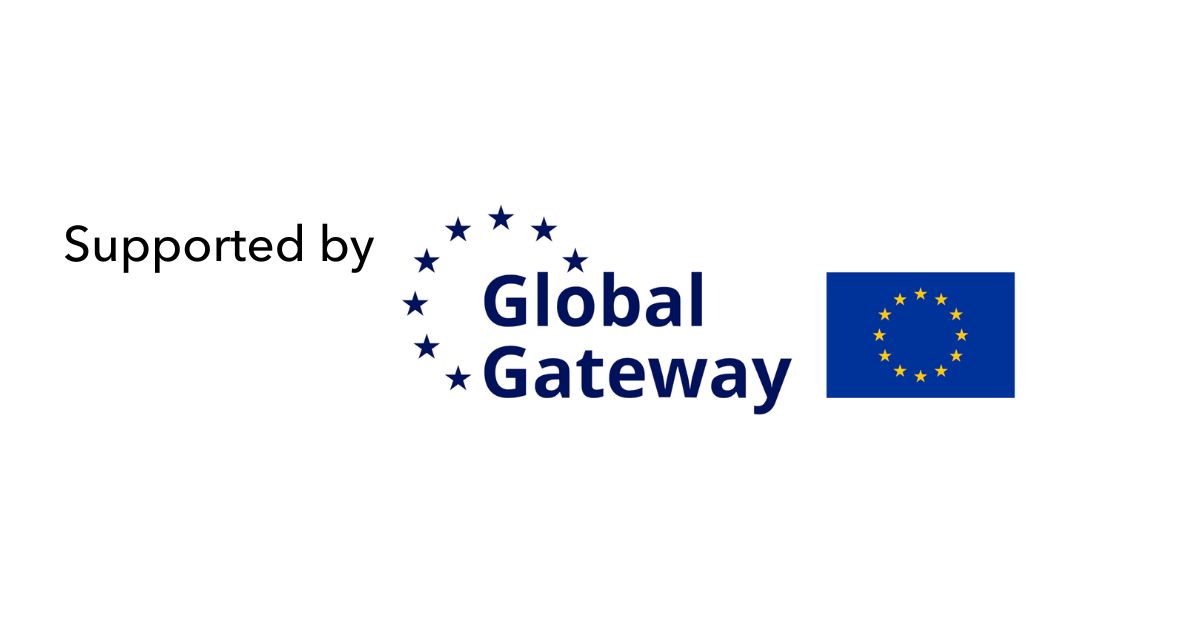South Africa
- Nokhanyo Yolwa
- Angel Draev
- Ghazi Mabrouk
Intermediate


Description
This training aims to develop a critical understanding of the challenges and critical success factors that need to be considered in considering the investment to spearhead the development of digital government. At a high level, the programme comprises three main areas of knowledge sharing and skills development organised into three major themes. Theme one establishes the contours of digital transformation by navigating and dissecting the social and economic value induced by the adoption and proliferation of digital technologies. The second theme is focused on mastering governance in the digital era by examining how government is impacted by digital technologies from administrative, sectoral and public service digitalisation perspectives. The third theme focused on a critical assessment of digital government strategies and the development of digital government capabilities. With generous support from the Global Gateway of the European Union, participation in this training programme is free of charge for selected applicants. This includes accommodation, meals, and other planned learning activities during the training. Participants or their organizations are responsible for covering their travel expenses.
Please note that the application deadline for this training has been extended to Sunday 7 July 2024.
Regulatory professionals, regulatory researchers, decision-makers and professionals active in policy and law-making, particularly those working in national and local government policy units, national and regional regulatory authorities, those engaged in legal drafting and those responsible for parliamentary oversight, should attend this course. Also, professionals active in the broad digital government, in regulatory departments of consulting and digital service provider companies, lawyers, journalists, union officials, and NGOs involved in the broad sector should attend. The aim is to explore the constantly evolving challenges facing policymakers, legislators, regulators and regulatory practitioners in the dynamic digital government environment.
The maximum number of participants in this training is limited to 30 people.
Members of the above-mentioned target population are invited to apply for the training if they meet the following criteria:
- Have an undergraduate degree in a relevant field or a minimum of three years of active sector experience in case an applicant does not hold a university degree.
- Have a fluent English language level.
- Complete the application questionnaire and attach an up-to-date CV, a recommendation letter from the employer or a motivation letter.
- Government officials and policymakers from developing countries, particularly women, are encouraged to apply.
- Selection will be done by the course organizers upon considering the above entry requirements in addition to the analysis of the application questionnaire and the recommendation/motivation letter of each applicant.
Upon completion of this course, participants will be able to:
- Assess the implications of digital disruption for the governance of society and the economy.
- Evaluate Public Value Creation in Digital Government Innovations.
- Design of Digital Government Strategies.
- Define Emerging Core Systems for Digital Government.
- Determine requirements for Governance, Regulation & Ethics.
- Evaluate Data-Driven and Evidence-Based Decision and Policy Making.
- Pre-and post-course reading of recommended reading materials.
- Interactive lectures with subject matter experts.
- The course will run for 5 days with 4 hours of face-to-face interactive lectures and 2 hours of either in-class practice exercises or group work per day.
- Group assignment and slide plus verbal presentation.
- Short essay-type individual assignment.
Attendance requirement = 80%
Two assignments, composed of:
- Group assignment weighting = 50%
- Individual assignment weighting = 50%
Each participant will need to pass both the group assignment and the individual assignment, with the combined total score being higher than 70%, as is required to obtain the ITU certificate. A participant who does not achieve a combined score of greater than 70% will be granted only one opportunity to revise or rewrite.
Day 1:
Session 1: Governance in a digital age: Key concepts
- Introducing key concepts: datafication – diffusion – disembodiment – disintermediation – disruption – digital economy – information society – innovation – globalisation – networks – platforms
- Introducing key concepts: artificial intelligence (AI)– big data – blockchain – cloud computing – Internet of Things (IoT)– virtual and augmented reality
- Regulatory implications of emerging technologies
Session 2: Initial guidance on preparing group and individual assessments.
Day 2:
Session 3: Introduction and positioning of digital government
- Define the nature of adaptive governance during digital disruption.
- Explain the characteristics of digital government and its evolution.
- Outline the important emphasis on digital government as an integrated, socio-technical phenomenon in the broader context of government.
Session 4: Developing Digital Government Strategy for Public Value
- Distinguish between different forms of Digital Government Strategy.
- Explore the idea of harnessing digital technologies to achieve idea of a service state.
- Explore openness and transparent government.
- Explain the role of regulation impact assessment as part of the developing government strategy.
Day 3:
Session 5: Digital Transformation of Government – Administrative Perspective
- Identify the key impacts of digital innovation on the administrative apparatus of government.
- Explore the emergence of Open Government and Data-led Governance in the context of digital transformation.
- Discuss the significance of interoperability as a key mechanism for achieving digital transformation in government.
- Identify and review the processes involved in public service digitalisation.
- Analyze the channels for delivering digital public services.
Session 6: Digital Transformation of Government – A Sectoral Perspective
- Identify the key impacts of digital innovation on different sectors, including health and education.
- Explore the opportunities and mechanisms for enhancing sectoral outcomes.
Day 4:
Session 7: Data-Driven and Evidence-Based Decision and Policy Making
- Big Data Analytics, Datafication & Machine Learning
- Smart City Government & IoT.
- Augmented & Virtual Reality, and digital twins.
- Smart governance strategy and ethical framework
- Algorithmic Governance
- Policy Modelling.
Session 8: Group exercise preparation
- Groups have time for finalising their presentations, which they will have worked on after lectures from Day 1, with a few guiding comments from the lecturers.
Day 5:
Session 9: Building Digital Capabilities for Governing – The Role of Digital Public Infrastructure, monitoring and evaluation
- Digital Public Infrastructure: Building trust in Citizen Identity, Data Exchange, and Digital Payments
- Digital public goods
- Introduction to GovStack as an example of DPG for the implementation of core DPI systems.
Session 10: Group presentations
- Small academic/industry panel observes and assesses group presentations
- Individual assessment submission









